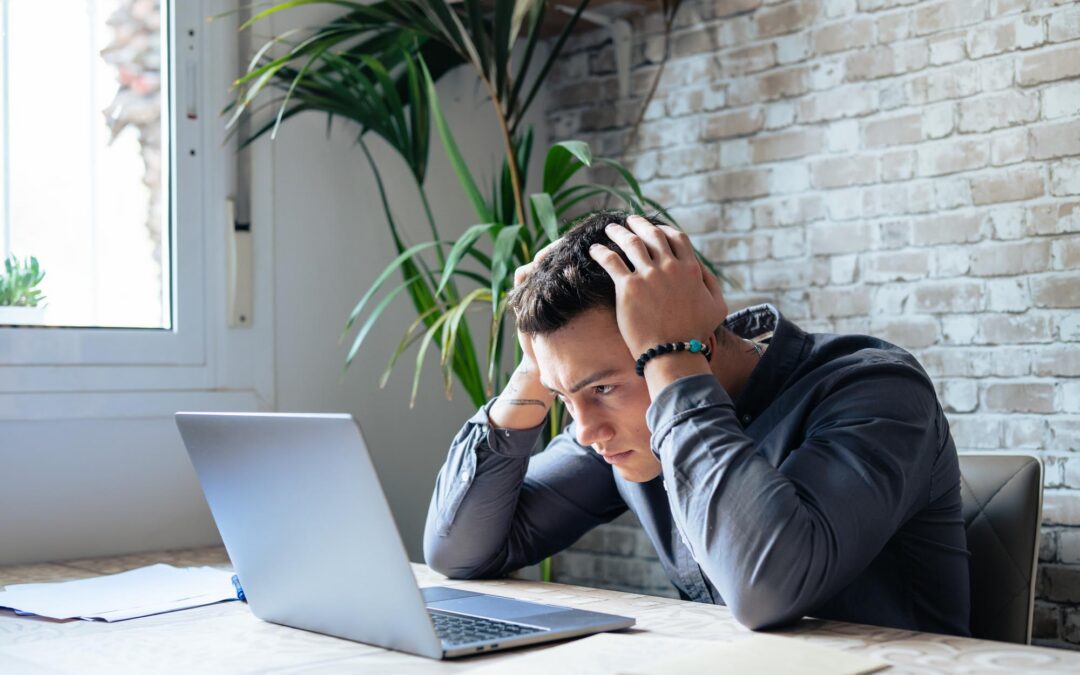Understanding Anxiety and Its Conventional Treatments
Anxiety disorders affect millions of people worldwide, manifesting through various physical and emotional symptoms:
- Racing heartbeat and excessive sweating
- Restlessness and difficulty concentrating
- Persistent worrying and intrusive thoughts
- Sleep disturbances
- Muscle tension and fatigue
Traditional medical treatments typically involve prescription medications, with two main categories dominating anxiety management:
1. Benzodiazepines
- Fast-acting relief for acute anxiety
- Common options include Xanax and Valium
- Risk of dependency and withdrawal
- Memory and coordination issues
2. SSRIs (Selective Serotonin Reuptake Inhibitors)
- Long-term anxiety management
- Popular choices include Prozac and Zoloft
- Takes weeks to show effectiveness
- Sexual side effects and weight changes
These conventional medications, while effective for many, come with significant drawbacks:
- Potential for physical dependence
- Withdrawal symptoms upon discontinuation
- Cognitive impairment
- Interference with daily activities
- Cost considerations
- Limited long-term solutions
You might find yourself seeking alternatives due to these limitations or personal preferences. Whether you’re experiencing unwanted side effects or looking for a more natural approach, understanding your options beyond pharmaceutical interventions can help you make informed decisions about your anxiety management strategy.
#You Can Consider
You have options beyond traditional anxiety medications. Natural alternatives can help manage anxiety symptoms while potentially reducing the risk of side effects associated with conventional medications.
1. Herbal Remedies for Anxiety Relief
Several herbs have shown promising results in reducing anxiety symptoms:
Kava (Piper methysticum)
- Creates calming effects through active compounds called kavalactones
- Studies suggest effectiveness comparable to low-dose benzodiazepines
- FDA Warning: Potential risk of liver damage requires careful monitoring
Passionflower (Passiflora incarnata)
- Mild sedative properties help reduce restlessness
- Particularly effective for sleep-related anxiety
- Lower risk profile compared to kava
Valerian Root
- Improves sleep quality and reduces anxiety
- Works by increasing GABA levels in the brain
- Best used for evening anxiety symptoms
Chamomile
- Available in tea or supplement form
- Contains apigenin, a compound that promotes relaxation
- Safe for long-term use with minimal side effects
Lavender
- Aromatherapy applications reduce acute anxiety
- Oral supplements show benefits for generalized anxiety
- Combines well with other anxiety management strategies
Lemon Balm
- Reduces stress and promotes calmness
- Often combined with valerian for enhanced effects
- Gentle option suitable for daily use
2. Important Safety Considerations
When considering herbal remedies for anxiety relief, it’s crucial to keep the following safety considerations in mind:
- Potential interactions: Herbal remedies can interact with prescription medications, so it’s important to consult your healthcare provider before starting any new treatment.
- Quality control: The quality and potency of herbal products can vary between manufacturers, so it’s essential to choose reputable brands.
- Individual responses: Some individuals may experience drowsiness or impaired alertness as a result of certain herbs, so caution is advised when driving or operating machinery.
- Pregnancy precautions: Pregnant women should avoid specific anxiety-reducing herbs unless otherwise directed by their healthcare provider.
- Blood-thinning considerations: If you are taking blood-thinning medications, be aware that certain herbs may interact with these drugs and increase the risk of bleeding.
You should consult your healthcare provider before starting any herbal treatment. They can assess potential interactions with current medications and help determine appropriate dosages based on your specific needs and medical history.
2. Therapy Techniques and Stress Management Strategies
Evidence-based therapeutic approaches offer powerful tools for managing anxiety without medication. The Cognitive Behavioral Therapy (CBT) stands out as a highly effective treatment, helping you identify and change negative thought patterns that fuel anxiety. Through CBT, you’ll learn practical skills to:
- Challenge anxious thoughts
- Develop healthier coping mechanisms
- Create realistic responses to stress triggers
- Build resilience against future anxiety episodes
Dialectical Behavior Therapy (DBT) provides specialized techniques for emotional regulation. DBT teaches you to:
- Practice mindfulness and present-moment awareness
- Tolerate distress during challenging situations
- Improve interpersonal relationships
- Balance acceptance with change
Complementary stress reduction methods enhance these therapeutic approaches:
- Meditation: 10-15 minutes daily reduces anxiety symptoms
- Deep Breathing: Box breathing (4-4-4-4 pattern) activates relaxation response
- Progressive Muscle Relaxation: Systematic tension-release exercises
- Yoga: Combines physical movement with mindfulness
- Guided Imagery: Mental exercises for stress relief
These techniques work independently or alongside traditional medications. Research shows combining therapy with other treatment methods increases success rates by 60%. Your therapist can help customize these approaches to match your specific anxiety patterns and lifestyle needs. If you’re also dealing with depression, consider exploring some of the comprehensive outpatient treatment options available, which include evidence-based therapy modalities tailored to address a wide range of mental health conditions, including effective techniques for coping with depression.
3. Lifestyle Changes to Support Your Mental Well-Being
Your daily habits play a crucial role in managing anxiety symptoms. Small adjustments to your routine can create significant improvements in your mental well-being.
Nutrition for Mental Health
- Cut back on caffeine, alcohol, and nicotine – these substances can trigger or worsen anxiety symptoms
- Reduce processed foods high in sugar and artificial additives
- Include anxiety-fighting foods rich in:
- Omega-3 fatty acids (salmon, walnuts)
- B vitamins (leafy greens, whole grains)
- Magnesium (almonds, dark chocolate)
- Zinc (pumpkin seeds, beef)
Physical Activity Benefits
- 30 minutes of moderate exercise 5 times per week reduces anxiety symptoms
- Activities like walking, swimming, or cycling release endorphins
- Regular movement improves:
- Stress resilience
- Sleep quality
- Immune system function
- Brain chemistry balance
Sleep Hygiene Essentials
- Maintain consistent sleep-wake times
- Create a dark, quiet, cool sleeping environment
- Avoid screens 1-2 hours before bedtime
- Practice relaxation techniques before sleep:
- Deep breathing
- Progressive muscle relaxation
- Gentle stretching
These lifestyle modifications work best when integrated with other anxiety management strategies. You can start with one small change and gradually build new healthy habits into your daily routine. For those seeking additional support, consider exploring the mental health resources available in Medford, MA. These resources offer therapy options and support groups that can complement your self-help strategies. Furthermore, if you’re looking for more comprehensive solutions, mental health treatment options are also accessible in the area, providing hope and healing through various professional services.
4. Supplements That May Help Manage Anxiety Symptoms
Specific supplements can play a significant role in managing anxiety symptoms when used as part of a comprehensive treatment approach.
Vitamin B12
- Supports production of mood-regulating neurotransmitters
- Helps reduce stress and fatigue
- Found in fortified foods or available as supplements
- Recommended daily dosage: 2.4 micrograms for adults
Omega-3 Fatty Acids
- Reduce inflammation in the brain
- Support cognitive function and emotional stability
- Sources include fish oil supplements or fatty fish
- Typical therapeutic dosage: 1,000-2,000mg daily
L-theanine
- Natural amino acid found in green tea
- Creates calming effects without drowsiness
- Promotes alpha brain wave activity
- Typical dosage: 200-400mg per day
Important Safety Considerations
- Purchase supplements from reputable manufacturers
- Check for third-party testing certification
- Verify ingredient lists for potential allergens
- Watch for interactions with prescription medications
- Start with lower doses to assess tolerance
Remember to store supplements properly in cool, dry places and check expiration dates regularly. Your healthcare provider can help determine appropriate dosages based on your specific needs and current medication regimen.
5. Aromatherapy: A Fragrant Approach to Calmness
The ancient practice of aromatherapy uses the natural properties of essential oils to create a soothing environment for your mind and body. Research shows that certain scents can trigger relaxation responses in your brain, making aromatherapy a valuable tool for managing anxiety.
Key Essential Oils for Anxiety Relief:
- Lavender: Promotes deep relaxation and improved sleep quality
- Bergamot: Reduces heart rate and blood pressure during stressful situations
- Ylang-ylang: Creates feelings of happiness and reduces nervous tension
- Roman Chamomile: Soothes racing thoughts and promotes mental clarity
- Valerian Root: Helps with sleep and relaxation, similar to its supplement form
Application Methods:
- Diffusion: Add 5-10 drops to a diffuser for ambient stress relief
- Direct Inhalation: Place 2-3 drops on a tissue for immediate calming effects
- Topical Use: Mix with carrier oils for massage (1-2% dilution)
- Bath Addition: 5-6 drops mixed with bath salts for a relaxing soak
Aromatherapy works best when integrated into your daily routine. You can place a diffuser in your workspace, bedroom, or meditation area. The practice becomes particularly effective when combined with deep breathing exercises or meditation sessions.
Remember to use high-quality, pure essential oils from reputable sources. Some people may experience skin sensitivity, so always perform a patch test before applying topically.
Seeking Professional Help at Advanced Therapy Center
When alternative treatments don’t provide sufficient relief from anxiety symptoms, professional help becomes essential. The Advanced Therapy Center in Medford, MA offers specialized outpatient programs designed to address anxiety and other co-occurring mental health disorders.
Our comprehensive treatment approach includes:
- Individual Counseling: One-on-one sessions with licensed therapists
- Evidence-Based Therapies: CBT and DBT techniques tailored to your needs
- Group Therapy: Peer support and shared experiences
- Holistic Treatment Options: Integration of alternative therapies with traditional methods
- Medication Management: Professional oversight of anxiety treatment plans
The center’s experienced staff creates personalized treatment plans that consider your unique circumstances and challenges. Research shows early intervention leads to better outcomes – waiting to seek help can intensify anxiety symptoms and potentially lead to additional mental health concerns.
Your recovery journey continues beyond initial treatment through:
- Regular check-ins with mental health professionals
- Ongoing support group participation
- Skill-building workshops
- Stress management training
- Relapse prevention strategies
At the Advanced Therapy Center, we also offer behavioral addiction treatment, which could be beneficial if you’re dealing with any form of addiction alongside your anxiety.
Contact us at Advanced Therapy Center at (781) 560-6067 to learn about our outpatient rehab programs in Massachusetts. Our team helps you develop effective coping strategies and build a strong foundation for long-term anxiety management. We also provide comprehensive treatment for various mental health conditions using evidence-based therapies to ensure personalized care.
Precautions When Considering Anxiety Medication Alternatives
Natural doesn’t always mean safe. Unlike prescription medications, herbal supplements face limited FDA regulation, resulting in varying product quality and potency between manufacturers.
Key Safety Considerations:
- Herbal supplements can interact with prescription medications, potentially causing dangerous side effects
- Some alternatives might increase sedation when combined with anxiety medications or alcohol
- Natural remedies can trigger allergic reactions or worsen existing health conditions
Your healthcare provider needs to know about any alternative treatments you’re considering. They’ll help:
- Evaluate potential interactions with current medications
- Assess your individual health risks
- Monitor your response to alternative treatments
- Recommend high-quality, tested supplements
Track your symptoms and any side effects in a daily journal. Stop using any alternative treatment that causes adverse reactions and contact your healthcare provider immediately. Remember: alternative treatments work best as part of a comprehensive treatment plan under professional guidance.




